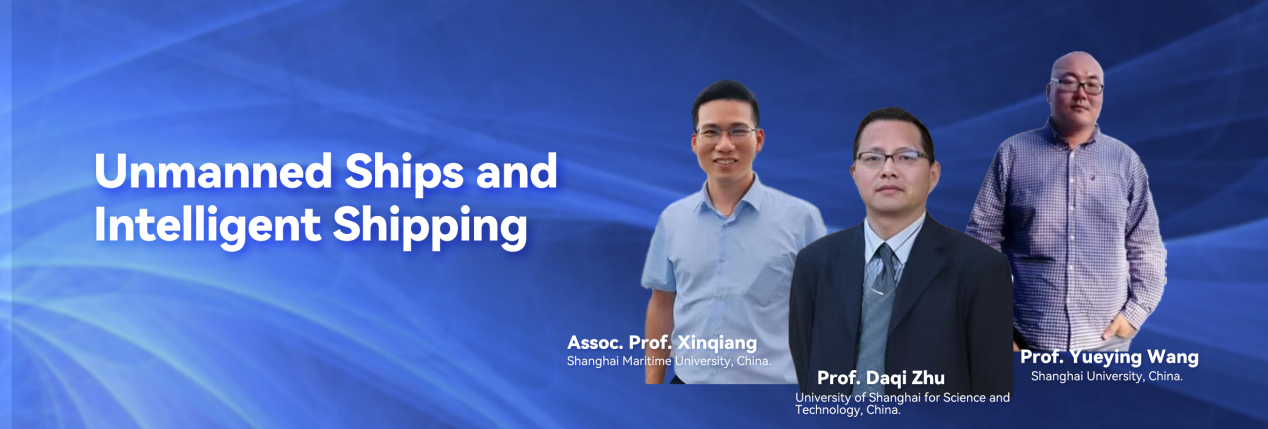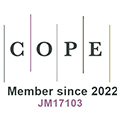Contents
Host

Prof. Daqi Zhu
Speaker(s)

Prof. Yueying Wang
Yueying Wang, Senior Member of IEEE, is mainly engaged in the research of intelligent control theory and application, and the development of marine intelligent unmanned equipment. He has published more than 20 high-level academic papers as the first/corresponding author, authorized more than 10 national invention patents, and presided over 5 projects of the National Natural Science Foundation of China (NSFC). He serves as an Associate Editor for international SCI journals, such as Electronics Letters, International of Control, Automation, and Systems, International Journal of Fuzzy Systems, International Journal of Electronics, and Journal of Electrical Engineering & Technology.
Topic: Intelligent Control of Unmanned Ships
Abstract: This talk introduces the research progress made by the group in recent years around several aspects of unmanned ships, including unmanned ship clustering, surface intelligent perception, autonomous recovery of unmanned underwater vehicles based on unmanned ships, and research and development of long-endurance unmanned ships in two navigational states.

Assoc. Prof. Xinqiang Chen
Xinqiang Chen mainly focuses on advanced AI technique-based smart ships, autonomous port management, and computer vision. He has published over 70 papers in top journals and conferences in the fields of transportation, navigation, and logistics. around 60 SCI papers included. He has authored/coauthored 10 ESI/hot papers. He has authorized and applied for 10 invention patents (e.g., U.S. patent, Canada Patent). He served as PI over 5 National Natural Science Foundation of China/Postdoctoral Fellowships, and 2 university-level fellowships. He has been invited to serve as a reviewer for top SCI journals and conferences in the fields of computer vision, transportation, and navigation. He serves as Associate Editor for IET Intelligent Transport Systems (SCI, JCR Q3), Measurement and Control (SCI, JCR Q3), International Journal of Advanced Robotic Systems (SCI), and Discover Applied Sciences (EI). He served as an editorial board member for the Journal of Marine Science and Engineering (SCI, JCR Q2) and Sustainability (SCI, Q1).
Topic: Intelligent Shipping Perception Based on Artificial Intelligence and Computer Vision
Abstract: Intelligent shipping is a key point of transportation power, maritime power, and manufacturing power. Intelligent vehicle/port/ship driving environment perception based on computer vision, artificial intelligence, and deep learning has become a research focus in the field. This talk mainly focuses on the extraction and analysis of the trajectories of people, vehicles, and ships in automated terminal and intelligent ship scenarios, using artificial intelligence, deep learning, computer vision, and other methods to carry out vehicle/vessel/people detection, tracking and identification from the low-visibility, high-interference, and complex shipping environment, as well as to discriminate and analyze the motion behaviors of related objects.
| Time (Beijing, UTC+8) | Speakers | Topic |
| 20:00-20:10 | Daqi Zhu | Welcome Remarks and Introduction to the Journal |
| 20:10-20:40 | Yueying Wang | Intelligent Control of Unmanned Ships |
| 20:40-21:10 | Xinqiang Chen | Intelligent Shipping Perception Based on Artificial Intelligence and Computer Vision |
| 21:10-21:25 | All | Discussion (Q&A) |
| 21:25-21:30 | Daqi Zhu | Concluding Remarks |
Relevant Special Topic(s)

Topic: Updates in Underwater Robotics
https://www.oaepublish.com/specials/ir.1870
Topic: Intelligent Control and Decision-making of Unmanned Ships
https://www.oaepublish.com/specials/ir.1916










